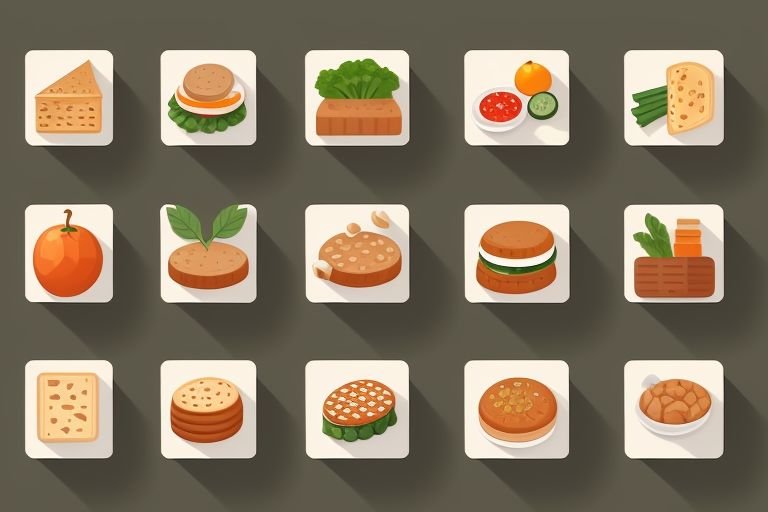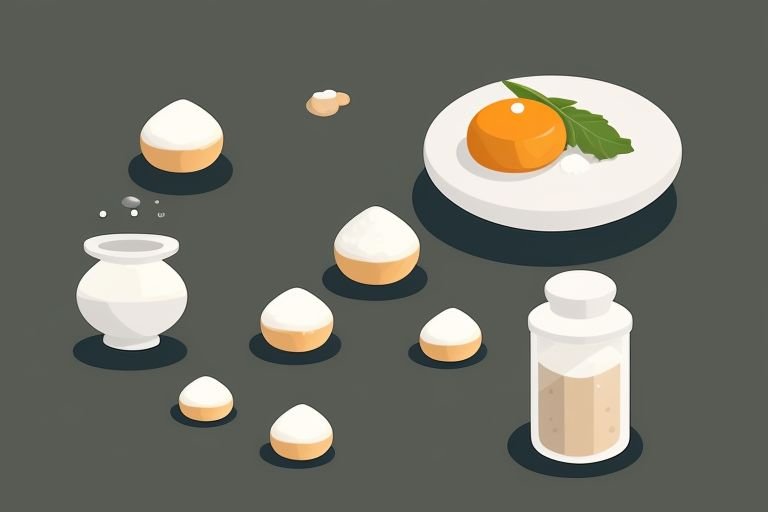Keep your vitamins: Simple tips for maximum nutrition
As we all know, vitamins are indispensable nutrients for the human body. Hence, a balanced diet can help us obtain enough vitamins from food. However, some vitamins are more “fragile” and are prone to loss, especially when encountering the following factors:
1. Refining process

In today’s market, almost all pastry foods such as bread, sweets, and rice products like white rice noodles undergo a refining process. While these foods taste good, there is a significant nutritional cost. Coarse grains, such as rice and wheat, are naturally rich in dietary fiber, B vitamins, and minerals. During the refining process, over 70% of vitamins and minerals are lost, and the loss of dietary fiber is even greater. A simple tip is to reduce the intake of refined foods and include moderate amounts of coarse grains, beans, and potatoes to supplement the nutrients lacking in refined white rice noodles.
2. Water

Water-soluble vitamins like vitamin C and B vitamins are easily lost in an aqueous solution. For instance, when washing vegetables, vitamin C is lost through water; blanching vegetables dissolve them in water causing loss; washing rice with excessive water can lead to the loss of B vitamins. So, wash and cut vegetables just before cooking, cook them immediately after cutting, and minimize water exposure when blanching vegetables. When washing rice, avoid using running water; instead, stir and wash a few times with hands in a basin to remove dust and then gently scrub.
3. Alkali

B vitamins are vulnerable to alkali, the natural enemy of these vitamins. Cooking grains in alkali, for example, when making porridge, causes a significant loss of vitamin B1 and some vitamin B2. To counteract this, adding a small handful of glutinous rice or a spoonful of oats when cooking porridge can increase viscosity. Some fruits like papaya, kiwi, and pineapple, known as “natural tender meat powders,” can use to marinate meat by adding their juice.
4. Oxygen

Some vitamins are prone to oxidation reactions when exposed to oxygen, resulting in losses. Cut or shredded vegetables and fruits undergo oxidation when exposed to air. To preserve nutrients, especially when buying coarse grains, opt for vacuum-sealed small packages, and store them away from light and moisture to isolate them from air.
5. Salt

Studies indicate that adding salt during cooking can partially destroy vitamin C in vegetables. The more salt added, the greater the loss of vitamin C. Adding salt first increases the exudation of vitamin C, leading to greater loss. This may be due to the hypertonic solution formed by salt during cooking, leaching out vitamin C and making it more susceptible to oxidation. Thus, adding less salt initially. Then add salt when the dish is almost ready to preserve vitamin C and reduce overall salt intake.
Conclusion
In conclusion, understanding the vulnerabilities of vitamins to refining processes, water exposure, alkali, oxygen, and salt is crucial for preserving their nutritional benefits. By minimizing the intake of refined foods, practicing careful water usage in food preparation, avoiding excessive alkali, protecting against oxidation, and moderating salt usage, we can retain the maximum nutritional value of vitamins in our daily diet. These simple precautions ensure that the nutritional goodness of vitamins remains intact, contributing to a healthier lifestyle.
Leave a Reply